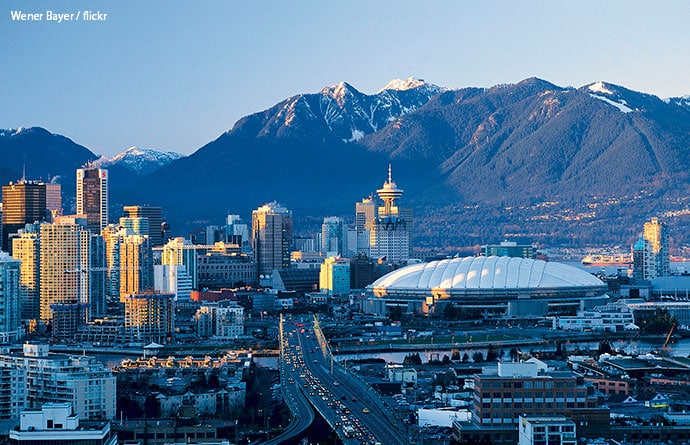
Nestled between the Pacific Ocean and the Coastal Mountains, Vancouver, Canada, is often ranked among the best cities in the world for quality of life.
You’re not alone if you’re considering moving to this stunning West Coast city. Vancouver’s diverse neighborhoods, vibrant job market, outstanding schools, and access to nature make it an ideal destination for families, young professionals, and retirees.
Whether you’re drawn to the temperate climate, career prospects, or outdoor lifestyle, this guide will walk you through everything you need to know before making the move to Vancouver.
You may also like to read: Moving to A New Province in Canada. In this guide, we offer some invaluable tips to make moving to Vancouver easier and cheaper.
1. Choosing the Right Neighbourhood
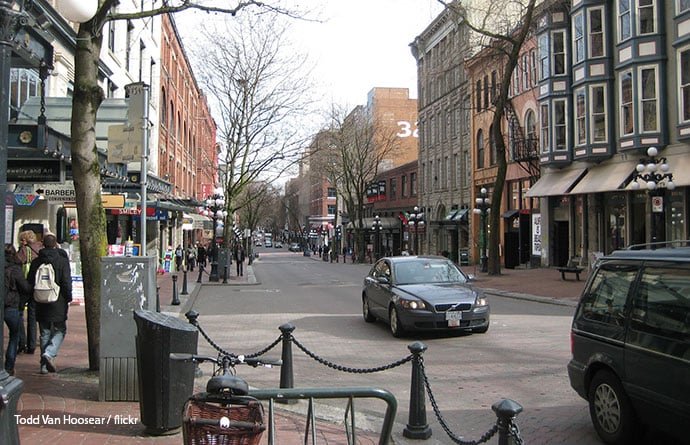
Vancouver is a city of distinct communities, each with its own vibe and appeal. Here’s a breakdown of some of the best neighborhoods:
Kitsilano (Kits)
Ideal for: Young families, professionals, and beach lovers
Kitsilano is beloved for its laid-back atmosphere, tree-lined streets, and access to Kits Beach. It’s home to excellent schools and has a strong sense of community, while still being close to downtown.
Mount Pleasant
Ideal for: Artists, creatives, young professionals
This eclectic neighborhood is known for its street art, breweries, and hip cafes. It’s a vibrant, youthful area that continues to grow in popularity due to its cultural energy and walkability.
Downtown/Coal Harbour
Ideal for: Professionals, empty nesters, urbanites
If you want to live in the heart of the action, downtown Vancouver offers high-rise condos, waterfront views, and proximity to business hubs, restaurants, and the arts.
West End
Ideal for: Nature lovers, singles, and retirees
Tucked between downtown and Stanley Park, the West End is peaceful yet central, featuring beach access and a strong LGBTQ+ community. It’s one of Vancouver’s most walkable areas.
East Vancouver
Ideal for: Budget-conscious movers, families, creatives
Known for its diversity and strong local identity, East Van is a patchwork of neighborhoods (like Commercial Drive and Hastings-Sunrise) with a more relaxed, community-focused feel.
North Vancouver
Ideal for: Outdoor enthusiasts, families
Though technically a separate municipality, “North Van” offers quick access to mountains, hiking trails, and ski resorts. It’s quieter and greener, making it ideal for families and those seeking more space.
You may also like to read: How to Choose a New Neighborhood. In this guide, we offer tips on what to look out for when choosing which neighborhood would best suit you.
2. Schools and Education
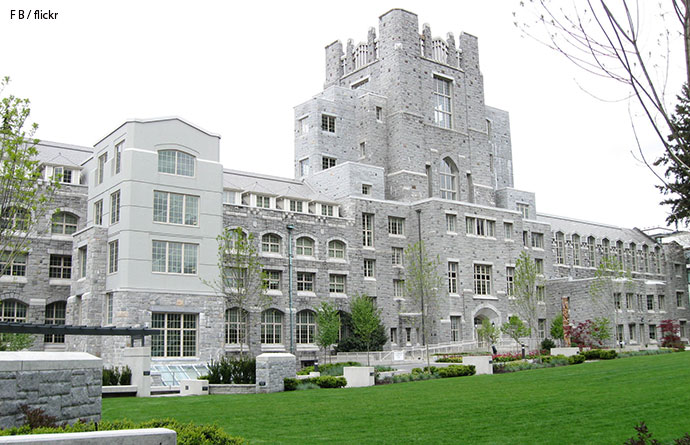
Vancouver is home to some of Canada’s best public and private schools.
The city is served by the Vancouver School Board (VSB), which operates over 100 elementary and secondary schools. Programs include French Immersion, Montessori, and the International Baccalaureate (IB).
Some notable schools include:
Lord Byng Secondary School (West Point Grey) – Highly ranked with strong academics and arts.
Eric Hamber Secondary (Oakridge) – Offers both regular and IB programs.
Crofton House School and St. George’s School – Prestigious private schools for girls and boys, respectively.
For higher education, the University of British Columbia (UBC) and Simon Fraser University (SFU) are among the top institutions in Canada, offering a wide array of undergraduate and graduate programs.
You may also like to read: How to Choose a Good School. In this guide, we offer tips on how to choose the best school when moving to a new place.
3. Job Market and Career Opportunities
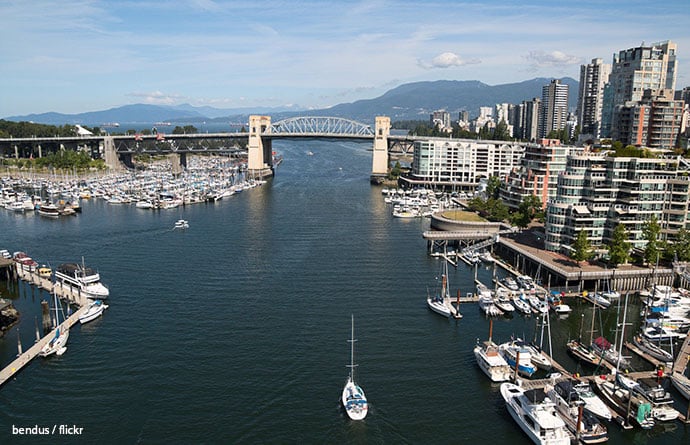
Vancouver’s economy is diverse and robust, driven by industries such as:
Technology – Vancouver is a rising tech hub, home to tech giants like Amazon, Microsoft, and SAP, as well as thriving startups.
Film and Television – Often called “Hollywood North,” Vancouver has a booming entertainment production scene.
Finance and Real Estate – Downtown Vancouver is home to major banks and financial services.
Green Economy and CleanTech – With an emphasis on sustainability, the city supports innovation in renewable energy and green building.
Vancouver also has strong employment in healthcare, education, and tourism.
The city’s unemployment rate is typically lower than the national average, and salaries are competitive, though they need to be — Vancouver is one of the most expensive cities in Canada in terms of housing.
You may also like to read: Relocating for Work. In this guide, we look at the pros and cons of moving for work opportunities.
4. Recreation and Outdoor Living
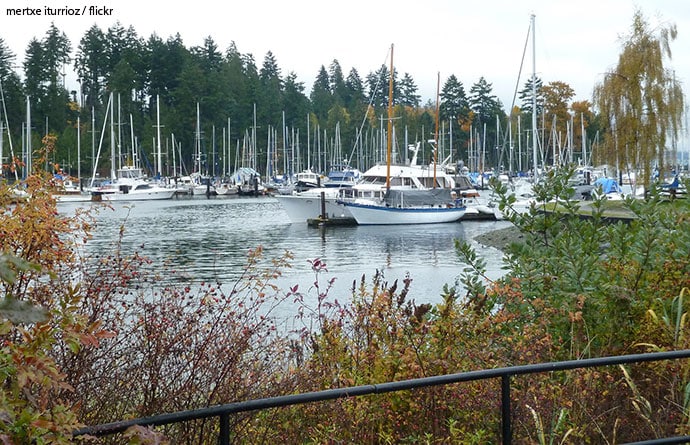
Few cities in the world offer the blend of urban life and the outdoors that Vancouver does.
Hiking and Biking
From easy trails like the Stanley Park Seawall to challenging routes like the Grouse Grind, there’s something for every fitness level. Mountain biking in the North Shore is world-renowned.
Skiing and Snowboarding
Just 30 minutes from downtown, Grouse Mountain, Cypress, and Mount Seymour offer great winter sports. Whistler Blackcomb, North America’s largest ski resort, is just a 90-minute drive away.
Beaches and Water Sports
Kitsilano, English Bay, and Jericho Beach are popular summer hangouts. Paddleboarding, kayaking, and sailing are common pastimes.
Fitness and Wellness
Yoga studios, gyms, and wellness centers are everywhere. Vancouverites tend to lead active, health-conscious lifestyles.
You may also like to read: Moving to Canada from the USA Checklist. If you are thinking of moving from the states to Vancouver then you will find this guide invaluable.
5. Nature and Environment
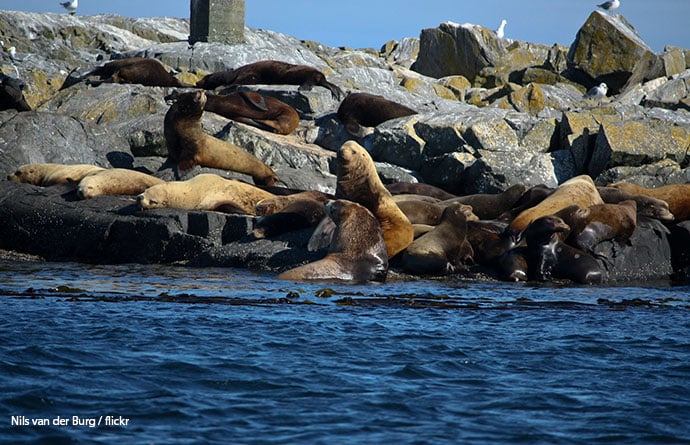
Vancouver has extensive green spaces, recycling programs, and progressive city planning.
Stanley Park, one of the largest urban parks in North America, offers 1,000 acres of forest, gardens, and beaches. Other notables include Queen Elizabeth Park, Pacific Spirit Regional Park, and the VanDusen Botanical Garden.
The city also prioritizes biking and public transit, reducing the need for cars. In fact, Vancouver aims to be the greenest city in the world.
You may also like to read: How to Make Your Move More Eco-Friendly. If you love nature, then you will probably want to know how to make your home move more eco-friendly. This guide tells you all you need to know.
6. Quality of Life
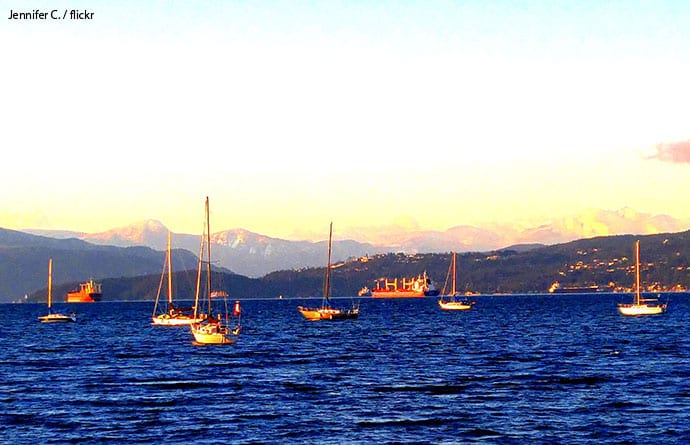
Vancouver consistently ranks in the top 10 globally for quality of life, and it’s easy to see why.
Multiculturalism and Safety
Over 50% of Vancouver’s population is made up of visible minorities. The city is incredibly multicultural, welcoming newcomers from all over the globe. It’s also one of the safest cities in North America, with low crime rates and excellent healthcare services.
Climate
Vancouver enjoys mild winters and warm summers, with more rainfall than other Canadian cities, but far less snow. If you don’t mind grey skies, the climate is quite livable.
Culinary Scene
Foodies love Vancouver’s diverse cuisine. From world-class sushi and dim sum to vegan cafes and farm-to-table fine dining, there’s something for every palate.
You may also like to read: How to Find the Best Movers in Canada. By now, you probably cannot wait to move to Vancouver. In this guide, we explain how to find the best movers in Canada for an easy and stress-free home move.
Should I Move to Vancouver?
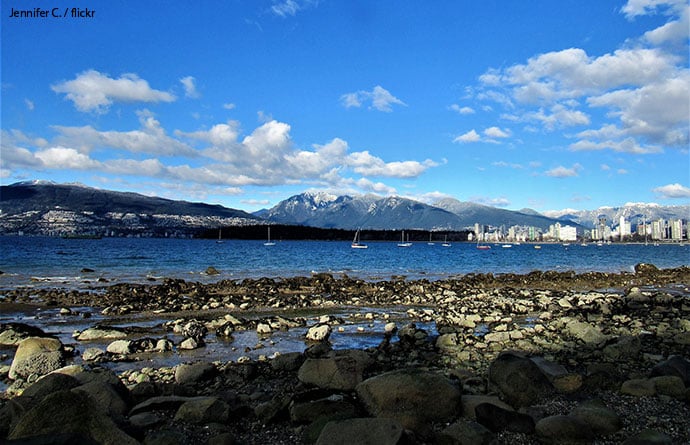
Moving to Vancouver is more than just a change of address — it’s a lifestyle change. With its combination of natural beauty, economic opportunity, and cultural diversity, this coastal city is an incredible place to call home.
Yes, the cost of living is high, but many find the investment worthwhile for the access to nature, quality education, and vibrant community life.
Whether you’re raising a family, launching a startup, or simply chasing a better work-life balance, Vancouver offers you every opportunity.
Be sure to check out our Moving in Canada section in our home moving blog, which is packed with useful information to make your relocation easier, cheaper, and safer.

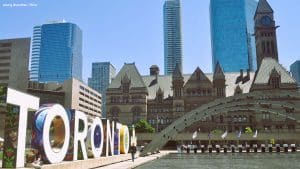
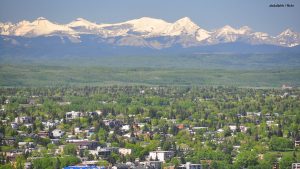
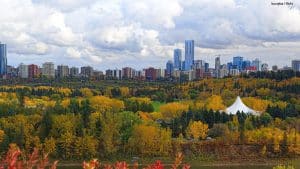
Share your thoughts by leaving a comment